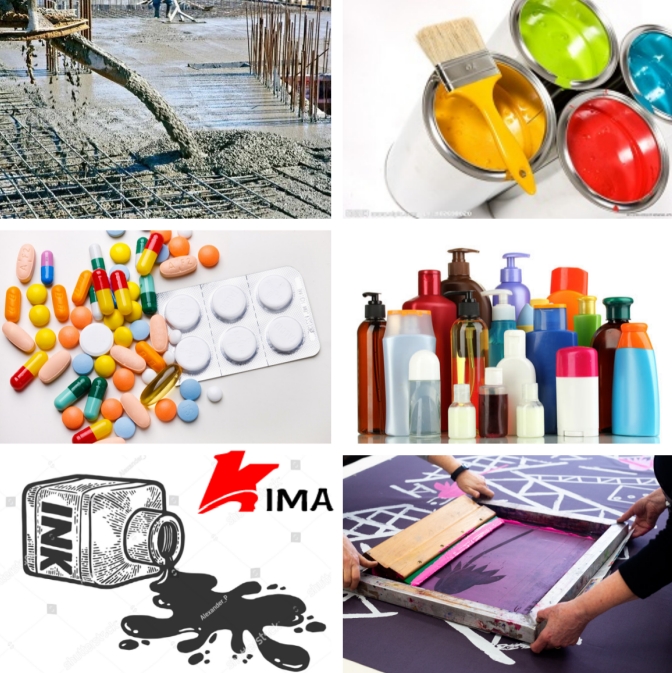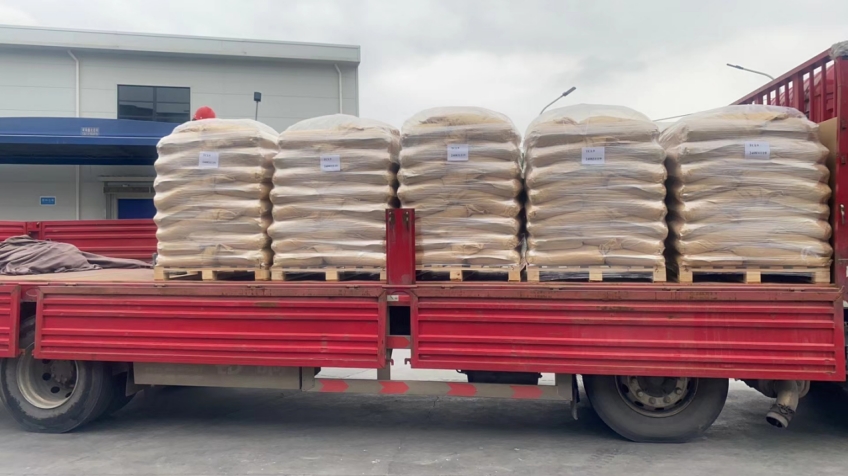Carboxymethyl cellulose (CMC) is an important polymer chemical widely used in many fields. It is made by carboxymethylation of cellulose and has good water solubility, controllable viscosity and a wide range of applications.

1. Food industry
In the food industry, CMC is widely used as a food additive, mainly for thickening, stabilization, emulsification, water retention and other functions. Common uses include:
Thickener and stabilizer: CMC is often used in foods such as jelly, soft candy, beverages, sauces, ice cream, etc., which can improve the taste and texture of the product and improve the stability of the food.
Emulsifier and suspending agent: In dairy products and beverages, CMC can help separate the oil and water phases, form a uniform emulsion, and prevent the stratification of ingredients.
Moisturizer: CMC can extend the shelf life, reduce water loss, and enhance the moist feeling of the product in foods such as bread and pastries.
Improver: In noodles, steamed buns and other pasta products, CMC can improve the ductility and adhesion of the dough and increase the softness of the taste.
2. Pharmaceutical field
In the pharmaceutical industry, CMC is often used in pharmaceutical preparations due to its biocompatibility and safety, mainly as an excipient:
Drug carrier: CMC is used to prepare oral drugs, gels and sustained-release agents. Due to its water solubility, CMC can help drugs dissolve and release effectively and control the release rate of drugs.
Sustained-release agent: In capsules and tablets, CMC can be used as a sustained-release material to control the release rate of drugs and prolong the efficacy of drugs.
Emulsifier: CMC can be used to prepare liquid drugs, injections and eye drops to help drugs exist stably and avoid stratification of components.
External preparations: CMC is also used to prepare topical ointments, gels, etc., which can provide good adhesion and stability and help drugs to be continuously released on the skin.
3. Daily chemicals
In daily chemicals, CMC is mainly used as a thickener and stabilizer to improve the texture and use effect of products:
Washing products: In shampoo, shower gel, detergent and other products, CMC can increase the viscosity of the product, making it easier to apply and use, and can also improve the cleaning effect.
Personal care products: In personal care products such as toothpaste, skin cream, lotion, etc., CMC is used as a thickener and stabilizer to improve the texture of the product, enhance the stability of the product, and prevent the stratification of ingredients.
Cosmetics: In cosmetics, CMC can improve the stability and touch of the product and enhance the application effect of cosmetics.

4. Industrial use
In industrial production, CMC is an important functional material and is widely used in many fields:
Paper and textiles: CMC is widely used in the paper manufacturing process as a filler, coating and thickener to improve the strength, gloss and printability of paper. In addition, it can also be used as a dispersant for dyes and coatings to improve dyeing uniformity.
Oil drilling: CMC is used as an additive in drilling fluids in oil production to increase the viscosity of drilling fluids, improve the rheological properties of drilling fluids, help cool drill bits, remove rock chips, etc.
Ceramic industry: CMC, as a ceramic binder, can increase the viscosity and stability of ceramic slurries, and enhance the strength and surface finish of ceramic products.
Construction industry: In building materials such as cement, paint and concrete, CMC is used as a thickener and moisture retainer to improve the operability and stability of materials, delay the drying process, and increase the adhesion of materials.
5. Chemical industry
In the production of chemical products, CMC is also used as an auxiliary material in many aspects:
Fertilizer production: CMC is often used as a thickener, adhesive and coating agent in fertilizer production to help release nutrients evenly into the soil.
Coatings and paints: CMC is used as a thickener and dispersant to control the rheology of coatings and improve the uniformity and adhesion of coatings.
Glue and adhesive: CMC is widely used in the manufacture of glue and adhesive, as a thickening and stabilizing component of adhesives, to improve the adhesion and performance of products.

6. Environmental protection field
In the environmental protection industry, CMC also has certain applications:
Water treatment: CMC can be used as a flocculant in the water treatment process to help remove impurities in the water and improve water quality.
Soil improvement: In agriculture and environmental protection, CMC can be used as a soil conditioner to improve the structure and water retention capacity of the soil and increase soil fertility.
7. Other uses
Agriculture: CMC can also be used as a stabilizer for pesticides to help improve the dispersibility of pesticides and increase their efficacy.
Animal feed: CMC, as a binder and stabilizer for animal feed, can improve the stability and nutritional value of feed.
Carboxymethyl cellulose has become an indispensable additive in modern industry, food, medicine and daily chemicals due to its good solubility, thickening, stability and other characteristics. With the advancement of technology, the application scope of CMC is still expanding, and its potential and value in various fields will be more prominent in the future.
 English
English 日本語
日本語 français
français Deutsch
Deutsch Español
Español italiano
italiano русский
русский português
português العربية
العربية Türkçe
Türkçe Nederland
Nederland






